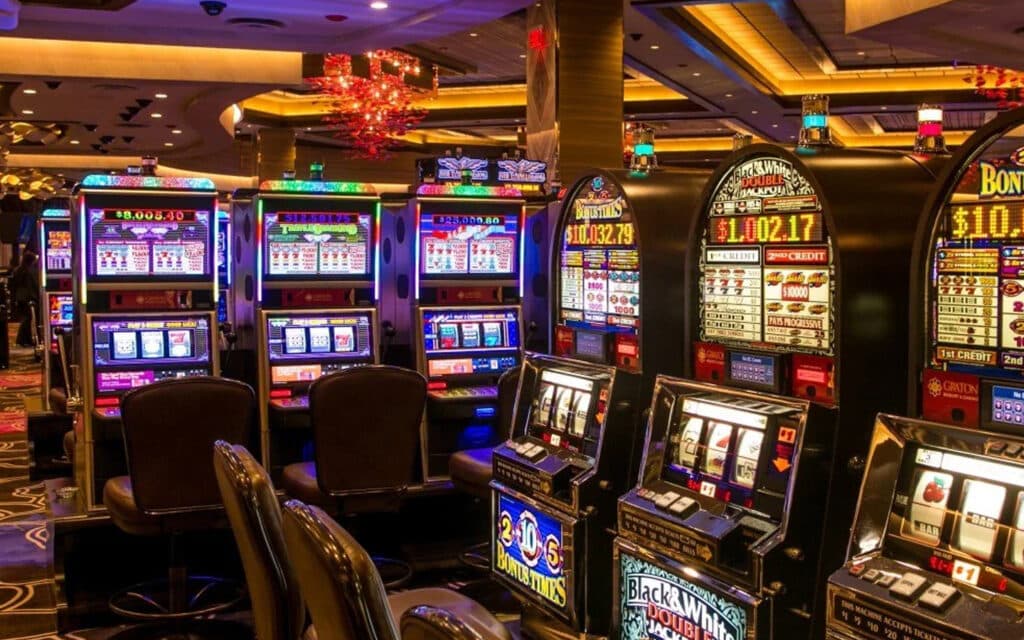
Casino games have long been a engaging entertainment option, drawing numerous of players from varied cultures around the globe. From the lively casinos of the Strip to the busy gambling halls of the Chinese gambling capital, these games serve as a bridge that unites people across a variety of backgrounds. The allure of fortune, strategy, and gambling entices not only those hoping to win money but also those seeking a shared experience.
The influence of casino games extends significantly past the gaming floor. They often reflect the cultural standards and beliefs of the communities in which they thrive. Games such as Texas hold ’em, 21, and the spinning wheel have woven themselves into the mosaic of cultural phenomena, influencing multiple fields from movies to style. As we explore this fascinating intersection of luck and life, we can gain insights into how casino games shape and are influenced by the environment surrounding us.
Chronological Progression of Casino Activities
The beginnings of gambling games can be followed back to ancient civilizations, where gambling in multiple forms was extensively practiced. In Ancient China, around 2300 B.C., a form of lottery known as Keno was well-known, while in historic Rome, soldiers would frequently bet on the consequences of their games. The idea of using randomness for amusement and income evolved over the ages, leading to the creation of more structured activities. By the final Middle Ages, gambling houses started to surface in European nations, notably in the Italian peninsula, which brought forth early forms of popular activities still practiced today.
As gambling expanded popularity in the continent, the 17th and 18th centuries saw the rise of gaming houses as specialized venues for betting. The initial official casino, the Ridotto, was established in Venice in the year 1638, offering games like Baccarat games and Faro. This time marked a significant shifting point, as gaming venues commenced to draw not just the elite but also the burgeoning middle-income class. The refinement of activities grew, leading to the introduction of new guidelines and variations that enriched the play experience.
In the 19th century, the era of industrialization and changes in social conventions also changed the environment of gambling activities. The introduction of the game of roulette and new one-armed bandits pulled in a broader clientele, and gaming houses became seen as legitimate recreation. This period witnessed the international spread of gambling, as casinos expanded from the continent to the New World, culminating in the development of the iconic Strip of Las Vegas in the 1900s. The progress of gaming games has continued into the present day, including technology and online sites, rendering them accessible to a worldwide market.
### Cultural Relevance across Diverse Communities
Gambling games have significant social value in numerous societies around the world. Places like Las Vegas, the very fabric of the urban landscape is woven around gaming venues, where gaming is not just a recreational activity but a fundamental aspect of leisure and community interaction. The dazzling lights and lively atmosphere attract countless individuals, showcasing how games of chance can influence local financial landscapes and cultural uniqueness. This setting transforms the notion of relaxation into an engaging experience that shapes fashion, sound, and even cinema.
On the other hand, some cultures treat wagering with an air of caution, considering it through the lens of ethical considerations and heritage. A case in point, in many Asian societies, games like Mahjongg and Pai Gow Gambling are full of history and possess significant social implications. 78win These games are often played during gatherings and occasions, fostering community bonds and reinforcing family ties. The act of playing these games goes beyond mere entertainment, reflecting principles such as deference to seniors and the importance of communal fun.
At the same time, in Western countries such as Monaco and the Italian Peninsula, casino games serve as symbols of luxury and refinement. The stylish atmosphere of these venues attracts both tourists and locals, reinforcing a sense of distinction and rarity. The art of Texas Hold’em and the strategic features of games like banker’s game are celebrated, influencing interpersonal interactions and creating an allure that captivates a varied audience. This highlights how casino games can both echo and shape societal views towards danger, reward, and social interaction.
Economic Impact and Travel Industry
Gambling activities play a important role in the economic landscape of many regions, particularly those that rely heavily on visitor traffic. The revenue produced from casino operations fuels local financial systems, creating jobs not only within the casinos themselves but also in connected industries such as hotel management, restaurant services, and recreation. This surge of tourists, drawn by the attraction of gambling and the overall casino experience, stimulates expenditure across multiple local enterprises, contributing to the economic health of the area.
The existence of casinos often leads to the development of facilities, including hotels, public transit, and recreational facilities. These improvements are essential in improving the overall tourist experience, making locations more appealing to visitors. Additionally, many casinos invest in local communities through sponsorship of events and philanthropic activities, further embedding themselves into the community structure of the locality. Such contribution not only supports economic growth but also fosters a positive reputation of the gambling sector.
In addition, the global popularity of casino games drives competitive tourism, with regions vying to attract gamblers from across the globe. Iconic locations like Las Vegas and Macau have become synonymous with casino culture, drawing millions each year. This advantage encourages innovation and variety within the gaming industry, influencing developments in entertainment and accommodation that resonate beyond their borders. The consequences of this tourism extend far, impacting local economies and cultural exchanges on a global scale.
